In the modern professional landscape, stagnation is the silent career killer. You’re ambitious, driven, and excelling in your role. But you also must have the foresight to see what’s next. The path to that promotion, that career pivot, or entrepreneurial venture is paved with new skills.
The most accessible solution is to take ongoing online courses. However, balancing a demanding career with rigorous coursework presents an immediate, formidable obstacle.
It is about finding an extra hour in your day through strategic integration. The ultimate goal is to transform online learning from a source of potential burnout into a powerful career accelerator.
To do that, we must move beyond generic time-management tips. This article provides a comprehensive framework for intelligently merging your work with your studies while ensuring your educational investment yields tangible career dividends.
Strategically Selecting Your Educational Path
Enthusiasm can lead professionals to enroll in the latest trending course, but a strategic approach yields far greater returns. Before committing time and money, ensure your chosen path is a direct bridge to your goals.
First, Conduct a “Career Gap Audit”
Instead of vaguely “upskilling,” meticulously analyze the gap between your current position and your desired future role.
Scrutinize job descriptions for positions you aspire to hold in the next two to five years. What specific, recurring skills do they demand? Is it
- Python for data analysis?
- Sustainability reporting for corporate leadership? or
- Advanced financial modeling?
Your audit provides a precise blueprint for the knowledge you need to acquire. This ensures you’re learning for tomorrow’s job market, not just today’s.
Second, Think About “Future-Proofing”
Select courses that address emerging trends in your industry. If AI is beginning to influence your field, a course on AI ethics or implementation is more valuable than a general management certificate.
By anticipating future needs, you position yourself as a forward-thinking leader.
Finally, Calculate the Return on Investment (ROI)
This frames your education as a calculated business decision.
- Will this certification allow you to command a 15% higher salary?
- Will this new skill set enable you to launch a viable side business?
Defining your expected ROI provides a powerful, intrinsic motivator that will sustain you through challenging weeks of study.
Strategic Integration: Weaving Your Studies into Your Work Life
The idea that you can neatly wall off your job, studies, and personal life is a myth. The real art lies in creating synergy between them:
The “Overlap” Principle
Actively seek opportunities to apply your coursework to your job.
For example:
If you’re taking a digital marketing course, offer to analyze your company’s current social media strategy for a class project.
If your course is on leadership, consciously apply a new management framework to a team project and document the results for your assignment.
Benefits of the approach include-
- Makes learning immediately relevant
- Reinforces concepts through practical application
- Reduces your overall workload by merging professional and academic tasks.
The “Sprint and Recharge” Method
The typical pattern of a full workday followed by a late-night study session is a direct path to exhaustion and diminished returns.
Instead, adopt an athlete’s mindset. Schedule focused, high-intensity “study sprints”.
For example, a four-hour, distraction-free block on a Saturday morning, followed by a planned “recharge” period where you completely disengage from work and studies.
This method
- Respects your cognitive limits
- Prevents burnout
- Significantly improves information retention
Building Your Support System for Sustainable Success
No successful professional achieves their goals in a vacuum. Building a multi-layered support system is a fundamental strategy for sustainable growth.
Securing Internal Buy-in at Your Workplace
Schedule a formal meeting with your manager. Present your educational pursuit as a direct investment in your ability to contribute to the company.
Explain that you are acquiring specific skills (the ones identified in your career gap audit) to improve your performance and take on greater responsibilities.
This transparency can foster goodwill and may lead to greater flexibility when you need it most.
Simultaneously, Establish External buy-in on the Home Front
Communicate your study schedule and needs with your family, partner, or housemates.
Protecting your focused “sprint” time is critical. On the other hand, their understanding and support are invaluable for creating a conducive learning environment.
Seek Targeted Academic Assistance
For leaders aiming to master every complex subject in their curriculum truly, it’s not uncommon to seek specialized help with online class materials to deeply understand intricate topics and ensure their work is of the highest quality.
This leads to the power of strategic delegation. This is a concept that top performers master in their careers. To maintain peak performance, you delegate tasks to focus on what matters most. Applying this same logic to your education is a powerful productivity hack.
Faced with a time-consuming, non-core prerequisite, a savvy professional might decide, “I will have an online class helper for this foundational module.”
This frees up time and mental stamina. It allows professionals to focus on the advanced, career-critical content that truly drives their future forward.
Tips for Choosing Academic Assistance Services
For working professionals enrolled in specialized courses, securing the right academic assistance is essential. To ensure the service you choose genuinely supports your educational journey, prioritize expertise, flexibility, and a proven track record. Here are some tips:
Vetting for Excellence
When your coursework dives into advanced or niche topics, generic tutoring isn’t enough. It’s vital to verify the credentials and specific expertise of any academic assistant. Look for services that clearly showcase their experts’ qualifications, such as Master’s or PhDs in relevant fields.
Don’t hesitate to ask about their industry experience or domain-specific knowledge. Reputable services will be transparent about their experts’ backgrounds.
Flexibility is Key
Working professionals often have unpredictable schedules. The academic support you choose should be highly flexible.
Prioritize Do my online class services that offer asynchronous communication so you can get help or access materials anytime. Many platforms now provide 24/7 support to accommodate different time zones and workloads.
Flexible submission deadlines and self-paced learning modules can also be incredibly valuable for balancing your work and study commitments.
Reading Reviews and Testimonials
Before committing to a service, review feedback from fellow working professionals. Look for testimonials that highlight expert quality, reliability, and scheduling flexibility.
Pay close attention to comments on communication, responsiveness, deadline adherence, and the overall effectiveness in supporting busy professionals.
Translating Education into Career Wins
Completing the course is not the finish line. The final, essential step is actively translating your new credentials into concrete career opportunities.
Showcase It
Don’t just add the certification to the bottom of your LinkedIn profile. Write a post about three key insights you gained from the course and how they apply directly to current trends in your industry. This demonstrates your expertise and thought leadership.
Quantify your growth
Connect your new skills to concrete business outcomes in your following performance review or promotion discussion.
Instead of saying, “I took a course on data analytics,” say, “My training in data analytics enabled me to build a new dashboard that identified inefficiencies and saved the team approximately 5 hours per week.”
Volunteer for High-visibility Projects
Here, you can act as the resident expert on the skill you just acquired.
This is the fastest and most effective way to transform theoretical knowledge into recognized, respected expertise in your field.
Conclusion
overwhelming. The real strength lies in mastering the balancing act. This isn’t about juggling everything at once. It’s about innovative and strategic integration. Align your education with your career goals. Let your studies enhance your daily work. Use academic support wisely. These proactive steps can help you build a stronger, more sustainable future.


